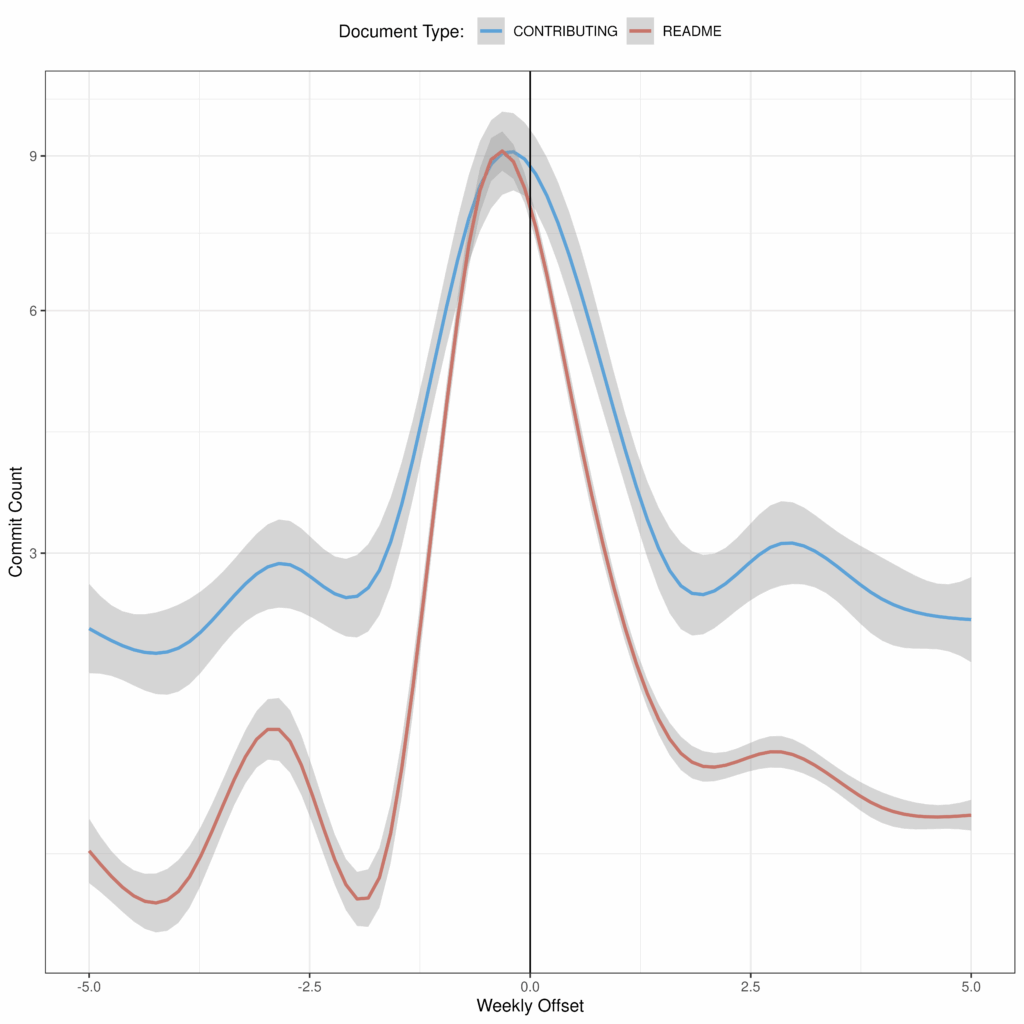Community decay and abandonment are persistent risks to free/libre and open source software (FLOSS) projects. As such, large institutions such as GitHub or Mozilla offer advice to FLOSS projects on how to organize their work for sustainability and community-building. Guides recommend the production of README files and CONTRIBUTING guides as useful tools in recruiting new project contributors and driving activity. Yet though the development of these documents is widely-suggested, there is little empirical study of how projects use these files and what happens when documents are introduced to projects.

In one of the first empirical studies of the initial publication of documentation files, our findings suggest a disconnect between institutional recommendations and FLOSS projects’ actual use the documents. Instead of being proactively developed and community-oriented, first-version files are published following an increase of activity and focus on the functional details of using or contributing to the library. Often, documents are published with hardly any content at all, with projects publishing empty or minimal files. We found no support for any causal claims around the nature of a document’s depth or focus and subsequent project activity.
Our results suggest that projects may use these documents to perform a norm. The publication of empty documentation files implies that an empty file in their home directory was more important to projects than any benefits of document contents. Our results also suggest that projects may use these documents to ‘get their house in order’ after an influx of activity.
The guides and recommendations that we examined did not specify when projects should take what actions to grow sustainably. This lack of specificity limits the utility for projects trying to figure out how to sustain themselves in ever-changing environments. The work necessary to develop meticulous, community-oriented files may not be a good time investment for early-stage projects with only a handful of contributors. More research is necessary to develop useful context-situated recommendations to support FLOSS projects adaptation.
This paper was presented a few weeks ago in Ottawa at the International Conference on Cooperative and Human Aspects of Software Engineering (CHASE) 2025. A pre-print of the paper can be found here; the data and code for the project can be found here.
This research wouldn’t be possible without the work of the volunteers producing FLOSS who have made their work available for inspection. We also gratefully acknowledge support from the Ford/Sloan Digital Infrastructure Initiative (Sloan Award 2018-113560) and the National Science Foundation (Grant IIS-2045055). This work was conducted using the Hyak supercomputer at the University of Washington as well as research computing resources at Northwestern University.
Discover more from Community Data Science Collective
Subscribe to get the latest posts sent to your email.